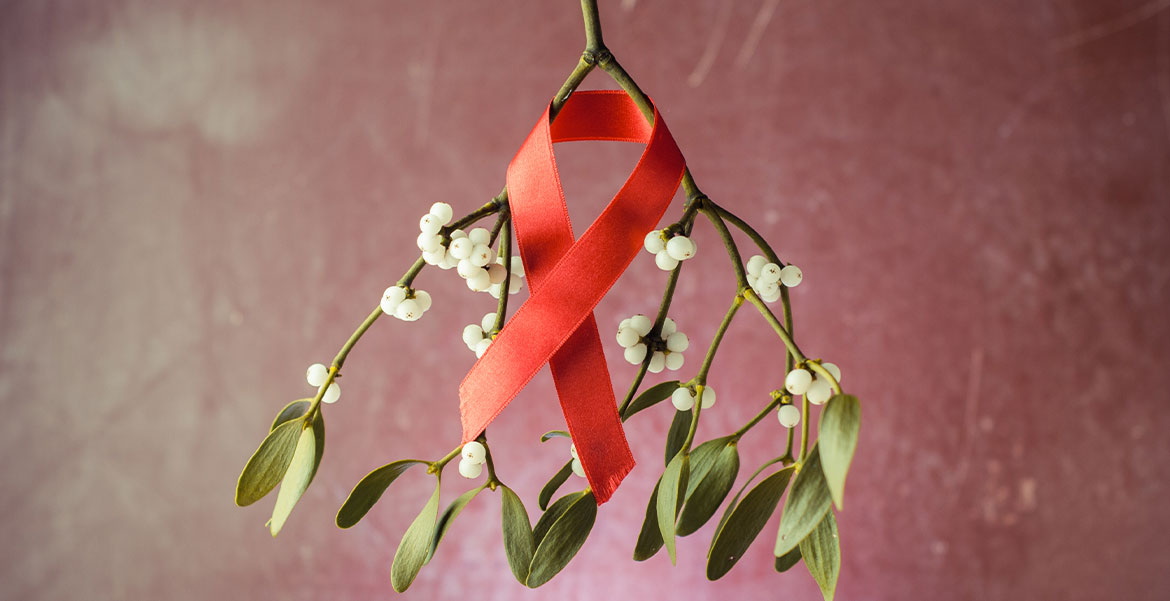Mistletoe Extract and Cancer
European mistletoe is a plant that grows on several different trees. The berry, leaf and stem of European mistletoe are used to make medicine.
Mistletoe contains biologically active molecules including lectins, flavonoids, viscotoxins, oligo- and polysaccharides, alkaloids, membrane lipids and other substances. Although the exact pharmacological mode of action of mistletoe is not completely elucidated, there are a growing number of biological studies with a clear focus on lectins. Lectins are carbohydrate-binding proteins displayed on cell-surfaces to convey the interaction of cells with their environment. Lectins mediate many immunological activities: For example, lectins show an immunomodulatory effect on neutrophils and macrophages by increasing the natural killer cytotoxicity and the number of activated lymphocytes.
According to MSKCC basic research shows that mistletoe extracts may stimulate the immune system to fight cancer. Studies in humans show that mistletoe treatment may improve symptoms and reduce side effects of cancer treatments.
Mode of use- Mistletoe extract is usually given by an injection under the skin (subcutaneous). Less common ways to give mistletoe include by mouth, into a vein (intravenous or IV), into the pleural cavity, or into a tumor.
Why use mistletoe extract?
Mistletoe extracts have been shown to do the following:
● Enforce natural killer cell-mediated tumor cell lysis.
● Reduce the migratory and invasive potential of tumor cells.
● Stimulate immune system cells both in vitro and in vivo.
They are applied to stabilize disease, achieve responsiveness, induce fever, improve quality of life, and improve the tolerability of conventional cancer treatments.
The doctors reported long-term disease stability and improvements in patients’ general condition, vitality, strength, thermal comfort, appetite, sleep, pain from bone metastases, dyspnea in pulmonary lymphangitis carcinomatosa, fatigue, and cachexia; chemotherapy was better tolerated. Also patients’ emotional and mental condition was reported to have improved. Individualized integrative cancer treatment including MT aims to help cancer patients to live well with their disease. Further research should investigate the reported observations.
Doctors use individually applied intravenous MT to stabilize disease, improve QoL and general condition, strengthen patients, support tumor control and relieve symptoms. The application is individually adapted.
If any adverse effects were reported: According to NCI few serious side effects have been reported from the use of mistletoe extracts. Side effects include soreness and inflammation at injection sites, headache, fever and chills.
One review reported that treatment was not found to lessen immune system response. High doses of mistletoe damaged the liver in some cases, but damage was correctable. Another review of clinical trials reported adverse effects that included circulatory problems, thrombophlebitis, swelling of lymph nodes and allergic reactions. A few cases of severe allergic reactions, including anaphylactic shock, have been reported.
Before starting on any therapy please discuss with your oncologist regarding the side effects, risks, benefits, results of authentic clinical trials etc. and then take a call.
References:
https://www.ncbi.nlm.nih.gov/pmc/articles/PMC4860234/
https://www.mskcc.org/cancer-care/integrative-medicine/herbs/mistletoe-european
https://bmccomplementmedtherapies.biomedcentral.com/articles/10.1186/s12906-020-03013-3
https://www.cancer.gov/about-cancer/treatment/cam/patient/mistletoe-pdq
Tags: European mistletoe, medicine, lectins, flavonoids, viscotoxins, oligo- and polysaccharides, alkaloids, membrane lipids, pharmacological mode, immunomodulatory effect, neutrophils and macrophages, activated lymphocytes, MSKCC, immune system, cancer, side effects of cancer treatments, subcutaneous, mediated tumor cell lysis, migratory and invasive potential of tumor cells, responsiveness, induce fever, improve quality of life, general condition, vitality, strength, thermal comfort, appetite, sleep, pain from bone metastases, dyspnea in pulmonary lymphangitis, carcinomatosa, fatigue, and cachexia, chemotherapy, QoL and general condition, strengthen patients, support tumor control, soreness and inflammation at injection sites, headache, fever, and chills, side effects.









